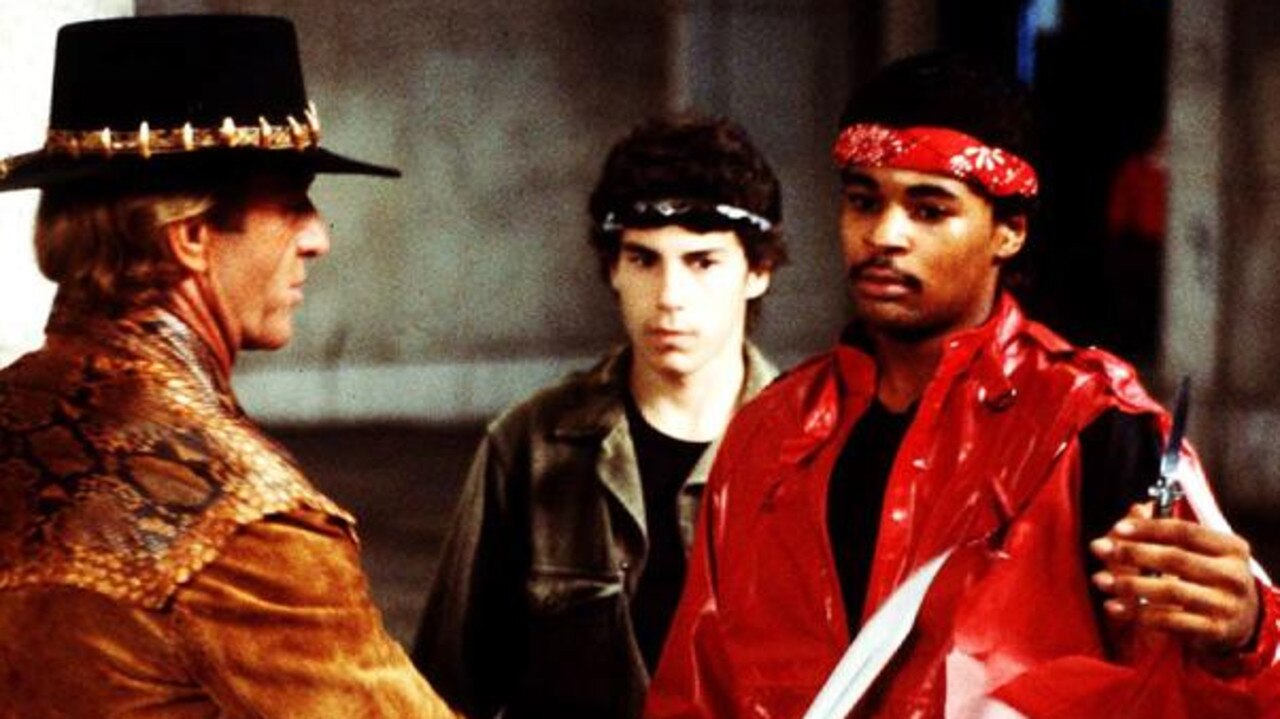Paul Starick: Holiday hell: When overseas travel is fraught with challenges
Paul Starick describes a confrontation with a South Bronx street gang, a rebuke from special forces troops in Afghanistan and an extraordinary Indian photo shoot with Ricky Ponting.
Fortunately my family holidays have been overwhelmingly enjoyable and cohesive journeys. But overseas travel for working journalists is often fraught with challenges
Just to mention a few of the most memorable moments: A forgotten flak jacket in war-torn Baghdad; a night-time confrontation with a South Bronx street gang; a stern rebuke from special forces troops for an unlocked car door in Kabul; and the Indian traffic cop who stopped an entire freeway for our Ricky Ponting photo shoot; then pushing the sick photographer through Hyderabad Airport on a wheelchair just days later. During a stint working at the wonderfully tabloid New York Post, I was sent to the infamous South Bronx for a crime-related story that involved doorknocking a shabby apartment.
Nobody was home. But I became lost, trying to find the way back to the subway stop.
Rounding a dimly lit corner, a menacing street gang of eight or so fellow young men strode quickly towards me. Sensing danger, I decided to embrace the Americans’ love of Paul Hogan’s Crocodile Dundee movie. “G’day fellers, how ya goin’?” I said, with a friendly manner in my thickest Australian accent.
“What you doin’ here man?” one replied.
“I’m from Australia. I’m here for work and I’m lost,” I said, again deploying a thick Aussie accent.

To my immense relief, they did not use their knives to gut me. Instead, another informed me this was a very dangerous area and I should be careful.
Presumably the leader of this band of badasses, he politely declared that the group would escort me to the subway stop for my own safety. They duly did so, asking about Adelaide and repeatedly vowing to ward off any attacks from rival gangs. Thankfully, I made it safely to the subway stop that night and, eventually, to the Manhattan newsroom.

Mortal danger lurked around every corner in Kabul in September, 2005, mostly thanks to my ineptitude and complete inability to follow instructions from our elite Australian troops. Embedded with the-then Defence Minister Robert Hill’s party, we’d flown into Afghanistan from a secret Middle East base aboard a C130 Hercules. Staying at the Inter-Continental Hotel, perched on a hilltop above the capital, we were guarded by special forces troops lurking in the corridors outside our rooms.
Travelling to a secure allied compound in central Kabul, I was assigned to sit in the boot of a large Toyota LandCruiser. Before we left, the two soldiers sitting in the front seats ordered me to lock the door.

The convoy’s cars lurched and wove through traffic to maintain speed. But, as we were picking our way through crowds in dusty, war-torn streets, the back door started rattling.
“Did you lock the door, mate?” one soldier brusquely demanded.
“Err …. No … I must have forgotten,” I limply replied.
Displaying remarkable forgiveness, the pair semi-politely reminded me that Kabul was bristling with Taliban and al-Qaeda militia, any one of whom would be delighted to fling open the unlocked doors and toss an improvised explosive device inside to kill us all.
Suitably chastened, I followed every order to the letter afterwards. But I should have known better. Visiting Baghdad in November, 2003, also with Senator Hill, his delegation toured a couple of the opulent palaces once occupied by deposed dictator Saddam Hussein but now repurposed as headquarters of allied forces.
We were repeatedly warned that Australian troops must remain vigilant for lightning mortar or rocket raids, even inside their headquarters. But, marvelling at the view of Saddam’s former lair as we strolled through the “secure” Green Zone, my army escorting officer, Lieutenant Kate Noble, urgently pointed out that I’d forgotten to don my flak jacket and helmet.
Thankfully, there were no attacks and all was well.


A far more pleasant experience was a photo shoot in 2008 with Australian cricket captain Ricky Ponting in the southern Indian city of Bangalore, a hi-tech industry hub, ahead of the Indian Premier League’s first-ever game. Meeting Ponting at our hotel, we squeezed into an autorickshaw to head for the grounds of an expansive colonial mansion scouted out by the photographer for the shoot. Unfortunately, the rudimentary map did not show a major freeway on the last few hundred metres of our journey.
However, this quandary was solved by a cricket-obsessed traffic cop. He ordered traffic stopped on the freeway, in return for Ponting’s autograph and a picture with him. Our autorickshaw then swept the wrong way up the freeway and into the mansion’s grounds for the photo shoot.

But circumstances soured after visiting a few more cities. Unfortunately, my photographer colleague, a charming Sydney-based bloke, succumbed to the curse of subcontinental travellers – gastro. We were in Hyderabad, working out whether to return to Australia or keep covering the IPL’s debut season.
The decision made to return, the photographer became so sick that our taxi driver had to stop several times on the way to the airport for him to retch on the roadside.

Once there, he became so weak he was unable to walk. I had to find a wheelchair and push him through departure controls to the gate. It felt like leaving a war zone. We made it home safely, via Singapore. But I became sick too – losing a fortnight from work and an incredible amount of weight.
That said, neither me nor the photographer would recommend this as a slimming technique.





